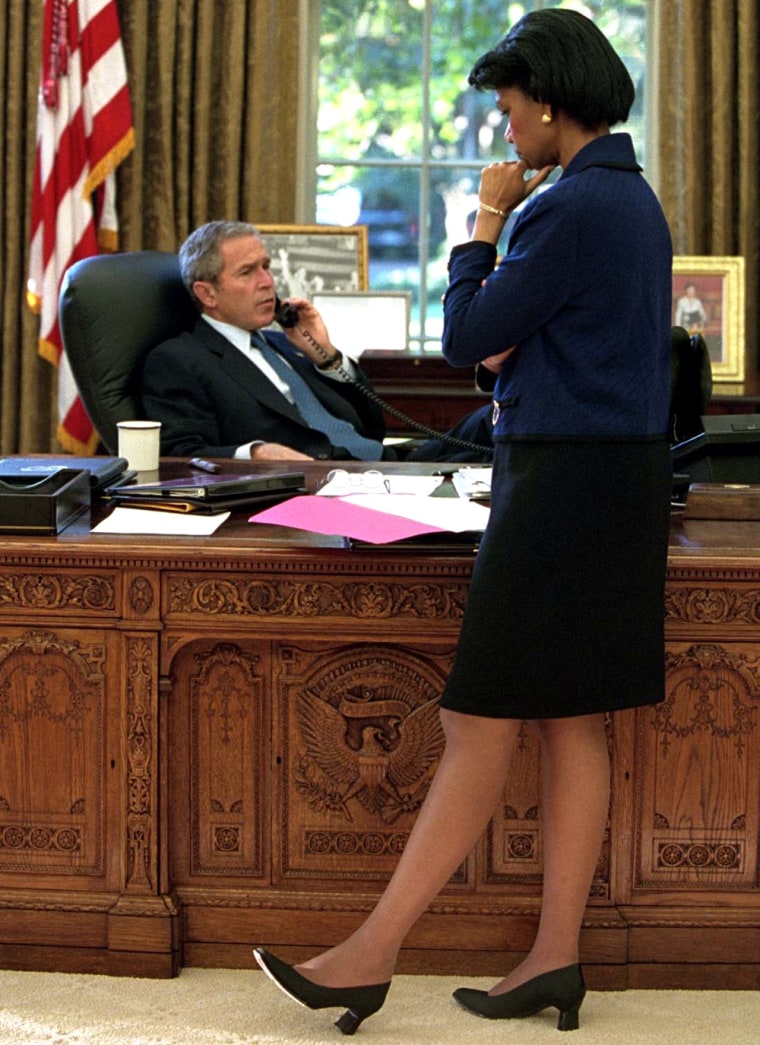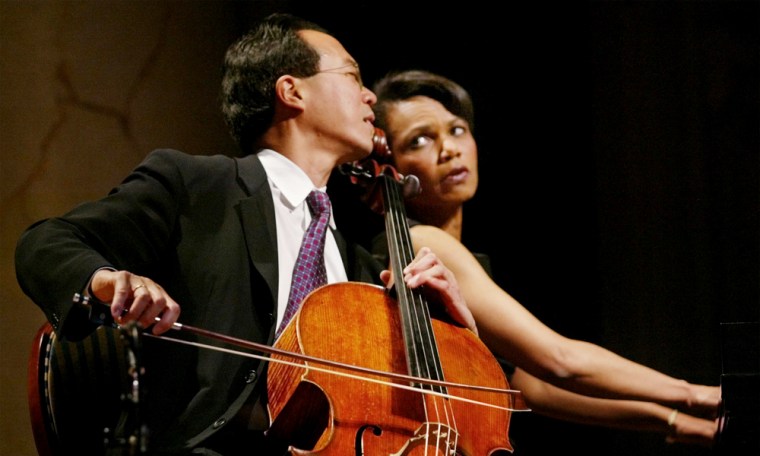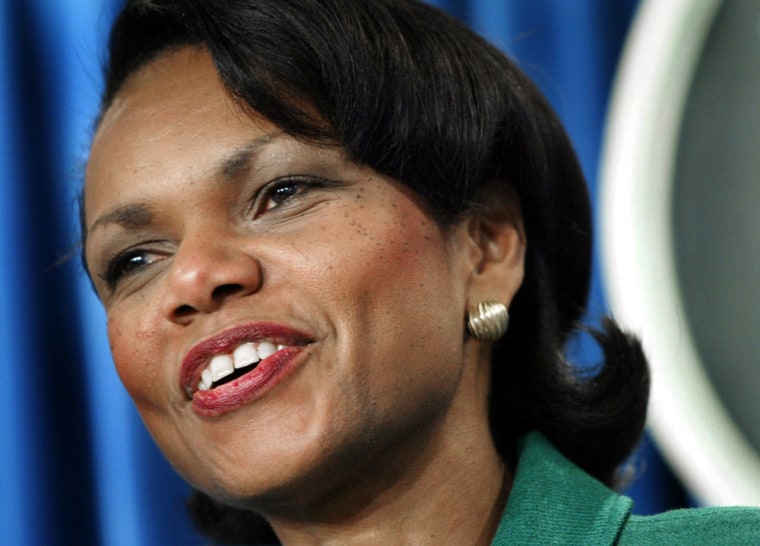The scene was Goree Island in Senegal, a place of great beauty and horrific history. As Condoleezza Rice stood at the Door of No Return, the transit point for so many Africans sold into slavery, a lump swelled in her throat as she quietly wondered which of her ancestors might have passed this way.
Rice, on that African trip with President Bush last year, marveled at the “tremendous spirit and toughness” of those unknown forebears who would somehow survive all the trials to come. “It just makes me extremely proud to be descended from those people,” she said then.
Spirit and toughness are qualities just as aptly ascribed to Rice herself — by admirers and critics alike.
The president’s national security adviser has had to draw on them as never before since the terror attacks of September 2001. And now, as an independent commission explores the circumstances surrounding the attacks, Rice is at the center of a debate over whether the Bush administration did enough to avert the terrorist threat.
Expertise an obstacle?
Some critics say Rice, whose background was as a Russia-Soviet specialist, seemed too focused in the Bush administration’s first months on subjects like China and Russia and on issues like missile defense. Her background, they say, made her less well-equipped to understand or deal with the emerging threat of terrorism.
Rice will testify before the commission in a much-awaited public session Thursday. The Bush administration is hoping that with her poise and quiet self-assurance, she can help bolster the confidence of Americans who lately have been registering increasing doubt about the president’s leadership on national security and anti-terrorism. With her sometimes conflicting explanations of administration actions, Rice’s own standing is at stake as well.
Already in defending Bush publicly, Rice — Condi to Bush and her friends — has shown both her soft, approachable side and the tenaciousness that have earned her descriptions like “steel magnolia” and “velvet hammer.”
At 49, Rice has some impressive firsts attached to her name: first female national security adviser and first black, first female and youngest provost at Stanford University. Her eclectic background includes credits as an accomplished pianist, competitive ice skater, all-around sports fan and avid exerciser.
When cellist Yo-Yo Ma visited Washington two years ago to accept a humanities award, Rice squeezed in a little rehearsal time between midday national security meetings. That night, she slipped into a black ball gown and accompanied Ma on a Brahms sonata as Bush sat in the audience for an awards ceremony at Constitution Hall.
Football, tennis ties to Bush
It was sports, not music, that brought her together with Bush.
Rice, who served as a Russia specialist on the first President Bush’s national security team, was visiting the former president in Texas in 1995 when she met his son, then the Texas governor. The two talked sports; Rice especially loves football. By the next time they met, at the Bush family compound in Maine in 1998, Bush was turning his aspirations toward the presidency and the topic of conversation had changed.

“In between tennis games and going out on the boat and sitting out on the back porch we would have conversations about what foreign policy challenges would face the next president,” Rice recalled. Soon Rice, then Stanford’s provost, was schooling the future president in world affairs, and she has been a confidante ever since.
She still uses sports metaphors to make her points.
“Foreign policy simply cannot be judged by today’s headlines that chalk up victories and defeats like so many box scores in the sports sections,” she said in a speech shortly before the Sept. 11 attacks.
Stanford experience
Success such as hers does not come without creating enemies along the way.
“Oh, yeah, lots of enemies,” said Michael McFaul, a Stanford political scientist who watched her rein in the university’s budget while serving as provost. Nonetheless, he said, “My own experience is that she’s been very good to other people, not stepping on them but working with people, even people with different political views from hers, including me.”

Treasury Undersecretary John Taylor, who also worked with Rice at Stanford and in the first Bush administration, describes her as “a very warm and genuine, deep person. She can give that sense of comfort to people in a friendly, small setting.”
At the same time, Leslie Gelb, president emeritus of the Council on Foreign Relations, who has known Rice for two decades, says he has seen a stiffening in her philosophical approach over the years.
In her early years, “she really looked like she was heading in the sort of Brent Scowcroft, moderate-conservative tradition,” he said, referring to the national security adviser under the elder Bush. “She basically has turned away from the reaching out of hands to moderates and has become a kind of administration hammer.”
Along the way, Gelb said, she has gone from being a conciliator or broker of different views to someone has sided with administration hard-liners and become an enforcer for Bush.
“When there’s somebody to knock down, some issue to fight publicly, she really is the one sent out to do the job,” he said.
Childhood and politics
Rice grew up in segregated Birmingham, Ala., the child of two teachers who did their best to shield from her from the stings of racial prejudice and who pushed her to excel. Her father became a Republican because the Democrats in Jim Crow Alabama would not allow him to register to vote, she says. Rice herself didn’t choose the GOP until she was an adult.
In a speech to the Republican National Convention four years ago, Rice told how her paternal grandfather had saved up enough cotton to pay tuition at Stillman College, and when the cotton ran out, he got wind of scholarships for Presbyterian ministers.
“Granddaddy Rice said, ‘That’s just what I had in mind,”’ she recounted. “And my family has been Presbyterian and college-educated ever since.”
